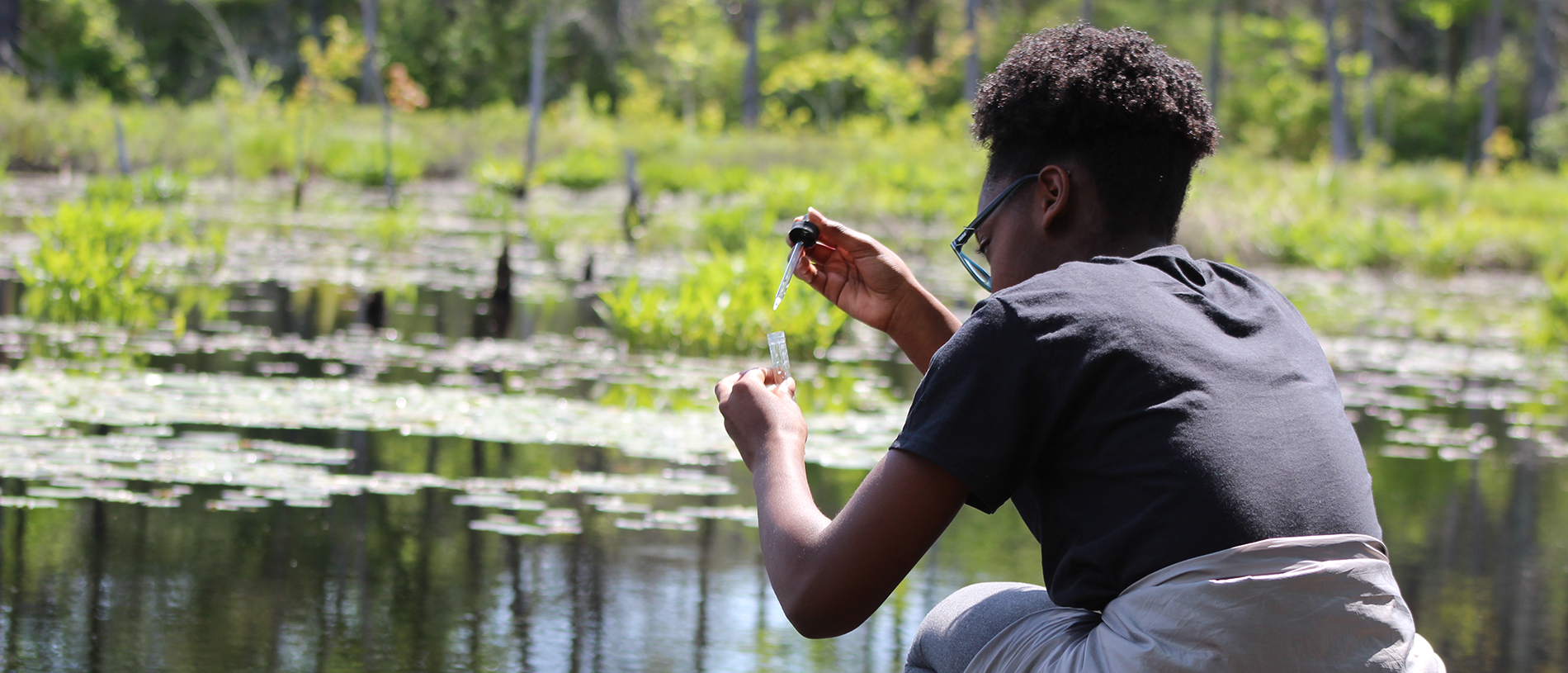At-Your-School Programs
Science of Massachusetts
Science of Massachusetts is a multi-week program that will engage your students in exciting, hands-on, nature-based science right in their schoolyard, while building your capacity to teach outdoor inquiry-based science. This program, taught as a partnership between a Mass Audubon educator and the classroom teacher, will get students get outside for a healthy dose of nature while diving into a standards-based science curriculum.
Support is available for districts with financial challenges, and our curriculum is designed to be accessible to all learners.
Curriculum Overview
The Science of Massachusetts, which is tightly aligned to the Massachusetts Science Curriculum Frameworks, takes K–8 students on a deep dive into science concepts through inquiry-based, outdoor learning.
Students will get outside in their schoolyard, complete field journaling assignments, develop important science practices, and be invited to find their place in nature and impact their world, whether they live in an urban, suburban, or rural community.
This program is offered in a unique format. Each lesson includes:
- An engaging, short video that introduces the lesson topic and can be viewed in the classroom or as homework.
- An outdoor field journaling assignment led by the classroom teacher, inviting students to connect with nature through place-based, hands-on science learning,
- A Mass Audubon-led sensemaking session, which allows time for students to deepen their understanding of science concepts and engage in science practices together.
Each unit is designed as a series, with one lesson completed over the course of a week.
Available Units
Grades K–2
In this unit, we will explore different types of "minibeasts", or invertebrates, like worms, pill bugs, and more. Students will engage in outdoor investigations to find out where the best place is for a minibeast to live. Students will document their observations in field journals as they explore different habitats in their schoolyard and use models to explain how these habitats may or may not support the needs of invertebrates. Finally, students will expand their investigation to explore the role invertebrates play to enrich the soil and understand how humans can learn from them to reduce their footprint and protect their local environment.
Trees provide much more than shade or pretty additions to city streets and neighborhood parks. This 6-lesson unit explores habitats, adaptations, and life cycles, with trees as a unifying theme. With accessibility to all learners as a priority, lessons highlight the diversity of trees across various Massachusetts habitats, including suburban, urban and rural areas.
Grades 3–5
Join Mass Audubon educators as we learn how energy from the sun powers life on Earth, both living processes and the technologies we use to power our communities. Each lesson explores one aspect of the energy cycle within biotic and abiotic systems; including photosynthesis, consumers, decomposers, renewable, and non-renewable energies.
In this unit, students will get outside and investigate the ways stronger storms impact their communities, specifically through rain and snow. They will identify places of vulnerability and places of resilience in their schoolyard or neighborhood. As a culminating project, they will design solutions to help reduce the impacts of stronger storms in their area and communicate it with members of their community.
Grades 6–8: The Climate of Massachusetts
Are trees the solution to climate change? Through place-based, inquiry-driven investigation, students will study the role of trees in the carbon cycle and expand their investigation to find out whether forest sequestration (or indeed any one nature-based solution,) is enough to fight climate change. Finally, students will explore their own role as a changemaker by planning a collective, climate-positive action.
More Information & Scheduling
Please reach out to us for more detailed descriptions of each lesson and/or to discuss options for implementation in your classroom, school, or district.
Stay Connected with Education
Sign up to hear about opportunities to help your students connect with nature and environmental science.



